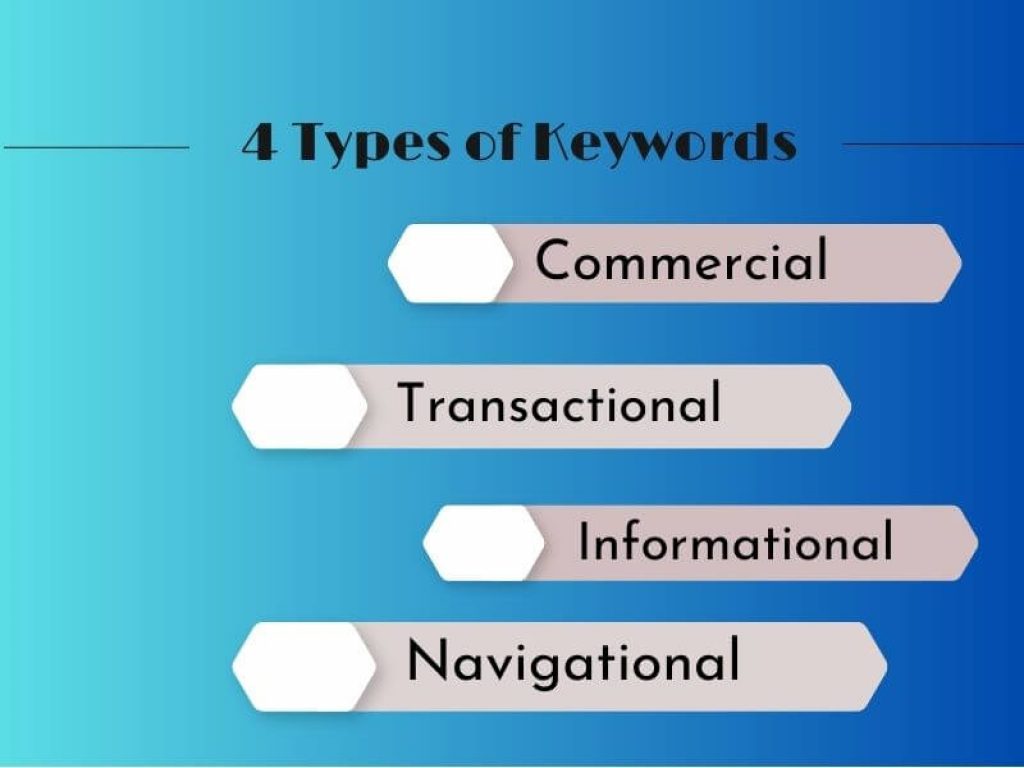
Last Updated on July 19, 2023
In today’s digital age, having a strong online presence is crucial for any business to succeed. One of the most important aspects of building a successful online presence is Search Engine Optimization (SEO).
And at the heart of SEO lies keywords. Keywords are the foundation upon which all SEO strategies are built. People use words and phrases to search for information on search engines like Google, Bing, or Yahoo. Businesses can improve their search engine rankings and attract more website traffic by identifying and strategically using relevant keywords.
In this article, we’ll explore the top reasons why keywords are essential for SEO and how to use them effectively to drive more traffic and conversions. Whether you’re a beginner or a seasoned digital marketer, this guide will provide you with valuable insights to help you optimize your website for search engines and stay ahead of the competition.
What are Keywords, and Why Keyword Research is Important
Keywords are the words and phrases that people use to search for information on search engines like Google, Bing, or Yahoo. They are the terms that describe a website’s content and help search engines understand what the website is about.
Keywords play a crucial role in SEO because search engines use them to determine the relevance and importance of a website. When people search for information online, they use keywords to find what they’re looking for. By optimizing your website for the right keywords, you can increase your visibility on search engines and attract more traffic to your site.
Keywords are important for SEO because they help search engines understand what your website is about. By using relevant keywords in your content, meta tags, and descriptions, you can signal to search engines that your website is a valuable resource for people looking for information on a particular topic. This can help improve your search engine rankings and drive more traffic to your website.
In addition, keywords can help you target specific audiences and drive more conversions. Using the right keywords can attract people more likely to be interested in your products or services and increase your chances of converting them into customers.
The Rule of Keywords in Search Engine Ranking
Search engines use complex algorithms to determine the relevance and importance of a website. One key factor that search engines consider when ranking websites is the use of keywords. Search engines analyze the content on a website to identify relevant keywords and use this information to rank the website in search results.
Websites that use relevant keywords in their content, meta tags, descriptions, and other elements are more likely to appear higher in search results than websites that do not. The use of keywords in search engine ranking is based on the principle of relevance. When people search for information on a particular topic, they expect to find results that are relevant to their search.
Search engines use keywords to identify relevant websites and rank them accordingly. The more relevant your website is to a particular search query, the higher it will appear in search results. However, it’s important to note that search engines also consider other factors when ranking websites, such as the quality of content, the number of backlinks, and the user experience. Keywords are just one of many factors that search engines use to determine the relevance and importance of a website.
Types of Keyword
Keywords can be classified into two main types: short-tail and long-tail. Short-tail keywords are typically one or two words and are more general. They are often used by people just starting their search and looking for more general information. Examples of short-tail keywords include “shoes,” “car insurance,” and “fitness tips.”Long-tail keywords, on the other hand, are more specific and typically consist of three or more words.

They are often used by people who are further along in their search and are looking for more detailed information. Examples of long-tail keywords include “women’s running shoes,” “affordable car insurance for young drivers,” and “healthy breakfast ideas for weight loss.”Long-tail keywords are often easier to rank than short-tail ones because they are more specific and have less competition. They are also more likely to attract people who are further along in the buying process and are more likely to convert into customers.
However, it’s important to note that short-tail keywords can be valuable for driving traffic to your website, especially if you are targeting a broad audience.
How to Conduct Keyword Research
Keyword research is the process of identifying the keywords that people are using to search for information on a particular topic. It’s an important step in SEO because it helps you identify the keywords that are most relevant to your target audience and that have the potential to drive the most traffic to your website.
You can use several tools to conduct keyword research, including Google Keyword Planner, SEMrush, and Ahrefs. These tools allow you to see how many people are searching for a particular keyword, how competitive the keyword is, and what other related keywords people are searching for.
When conducting keyword research, it’s important to consider the relevance and competitiveness of your target keywords. You want to choose keywords that are relevant to your target audience and that have the potential to drive the most traffic to your website. At the same time, you want to choose keywords that are not too competitive, as it can be difficult to rank for highly competitive keywords.
Keyword Placement and Density in Content
Once you have identified the keywords you want to target, strategically placing them in your content is essential. Keyword placement refers to the location of keywords in your content, while keyword density refers to the frequency with which keywords appear.
When placing keywords in your content, it’s essential to do so naturally and organically. You don’t want to stuff your content with keywords, as this can be seen as spammy and can hurt your search engine rankings. Instead, try to incorporate keywords that make sense and add value to your content.
Keyword Optimization in Meta Tags and Descriptions
In addition to incorporating keywords in your content, it’s also important to optimize your meta tags and descriptions. Meta tags and descriptions are the snippets of text that appear in search results and provide a summary of the content on a website.
By including relevant keywords in your meta tags and descriptions, you can help search engines understand what your website is about and improve your search engine rankings. When writing meta tags and descriptions, try to include your target keywords in a way that makes sense and adds value to the text.
Importance of Using Variations of Keywords
When optimizing your website for search engines, you must use variations of your target keywords. This includes synonyms, related keywords, and long-tail keywords variations of your target keywords.
By using variations of your target keywords, you can attract a wider audience and increase your chances of ranking for multiple keywords. For example, if your target keyword is “running shoes,” you could also use variations like “sneakers for running,” “best-running shoes for women,” and “running shoes for flat feet.”
Using variations of your target keywords can also help you avoid keyword stuffing and make your content more natural and organic. Just be sure to use variations that make sense and add value to your content.
Keyword Tracking and Analysis
Once you have optimized your website for keywords, tracking and analyzing your results is important. This will help you determine which keywords drive the most traffic to your website and which are not performing as well.
You can use several tools to track your keyword rankings, including Google Analytics, SEMrush, and Ahrefs. These tools allow you to see how your website ranks for different keywords, how much traffic each keyword drives to your website, and how your rankings change over time.
By tracking and analyzing your keyword rankings, you can identify improvement opportunities and adjust your SEO strategy as needed. This can help you stay ahead of the competition and drive more traffic and conversions to your website.
Common Keyword Mistakes to Avoid
While keywords are essential for SEO, there are also several common mistakes that you should avoid. One of the biggest mistakes is keyword stuffing, which is using too many keywords in your content to manipulate search engine rankings.
Keyword stuffing can hurt your search engine rankings, as it can be seen as spammy and can result in penalties from search engines. Instead, focus on using keywords that add value to your content naturally and organically.
Another common mistake is targeting the wrong keywords. It’s important to choose keywords that are relevant to your target audience and that have the potential to drive the most traffic to your website. If you target the wrong keywords, you may attract the wrong audience and not see the results you’re looking for. Finally, it’s essential to keep up with changes in search engine algorithms and adjust your SEO strategy accordingly. Search engines are constantly changing and updating their algorithms, so staying up-to-date and adapting your strategy as needed is essential.
Conclusion
In conclusion, keywords are a crucial aspect of SEO. Businesses can improve their search engine rankings and attract more website traffic by identifying and strategically using relevant keywords. Whether you’re a beginner or a seasoned digital marketer, it’s important to understand the role of keywords in SEO and how to use them effectively to drive more traffic and conversions.
By conducting keyword research, optimizing your content and meta tags, using variations of keywords, and tracking and analyzing your results, you can stay ahead of the competition and continue to grow your online presence. So, start optimizing your website for keywords today and see your results!






